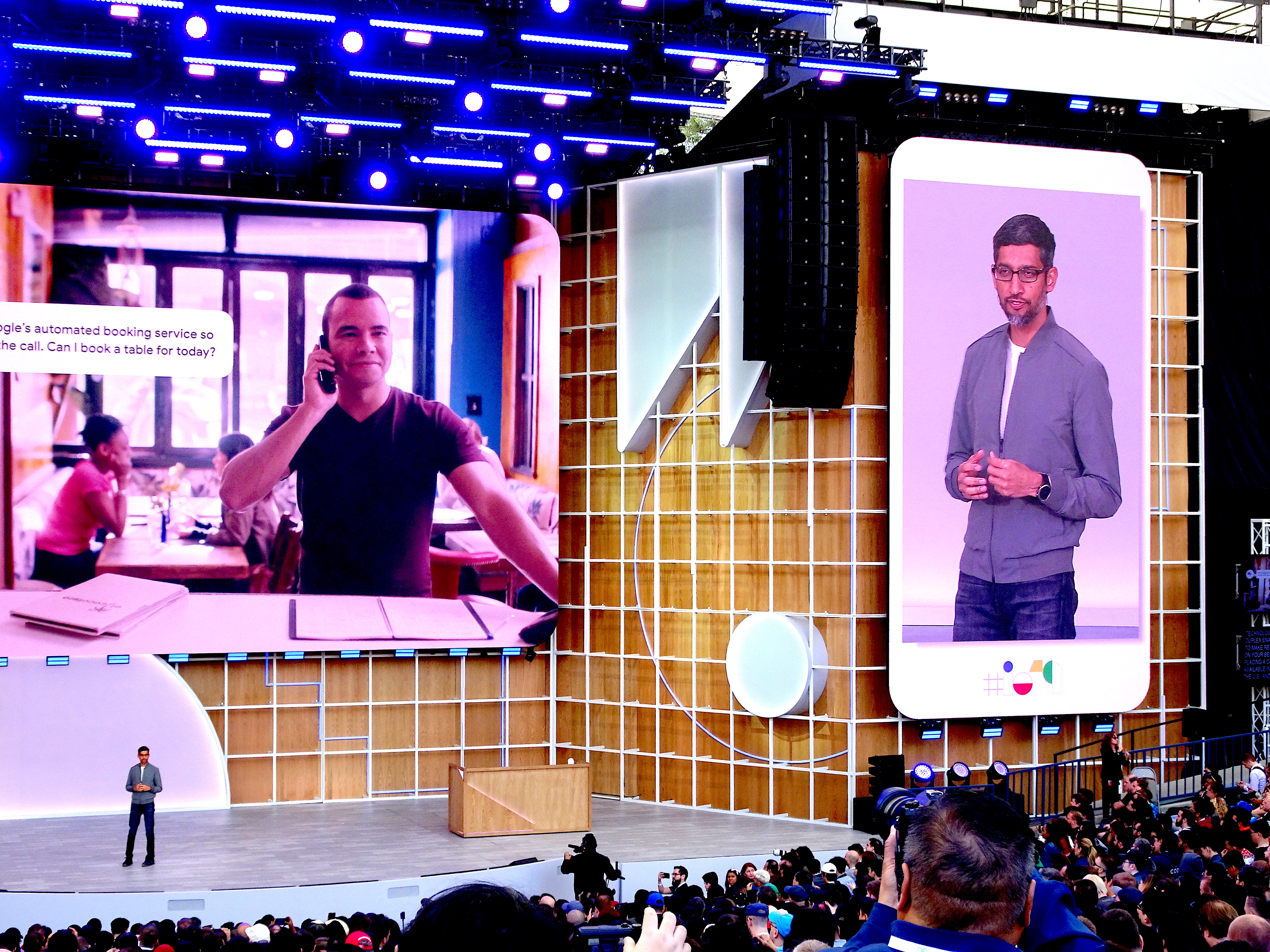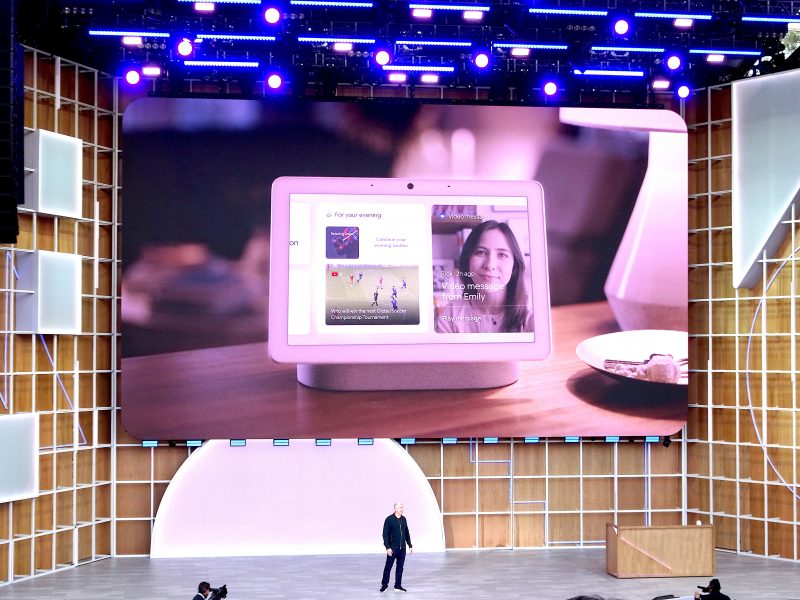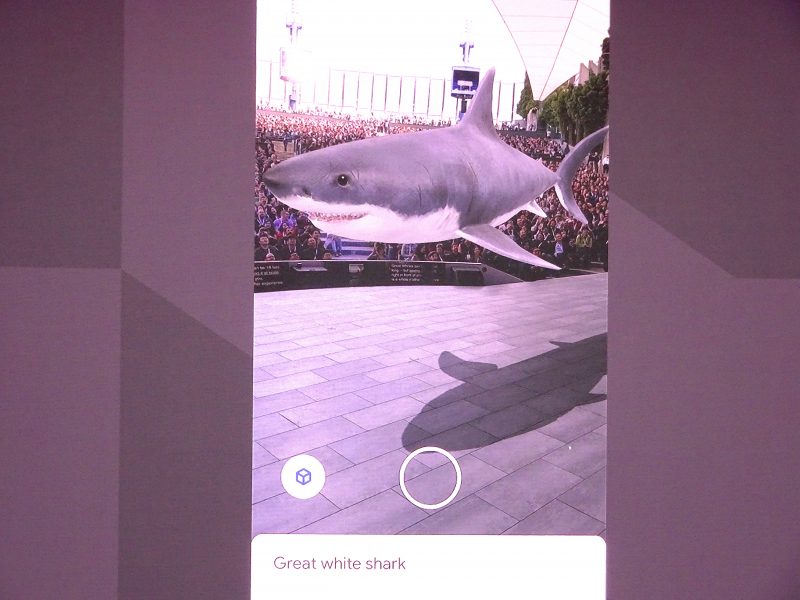 EMERGING TECH
EMERGING TECH
 EMERGING TECH
EMERGING TECH
 EMERGING TECH
EMERGING TECH
Pretty much as expected, Google LLC today debuted two new midrange smartphones and a new hub for home devices, but improved services such as a recharged Google Assistant that works much faster got most of the love from the tech giant.
Headlining the announcements this morning at its annual Google I/O conference for software developers was a duo of new midrange Pixel phones. The 5.6-inch Pixel 3a will start at $400 and, not least, has a headphone jack. The six-inch Pixel 3a XL starts at $480.
![]()
Google also introduced a $229 Nest Hub Max, a renamed Google Home Hub with a camera and a larger 10-inch display, as part of a rebranding under the Nest label.

But more than the marquee announcements, what emerged from the conference is an overriding focus on utility, aided by artificial intelligence.
“We want our products to work harder for you,” Google Chief Executive Sundar Pichai (pictured) said in his morning keynote. “Our goal is to build a more useful Google for everyone.”
For example, Google introduced the ability to use Google’s smartphone Camera app with its search service, so you can point it at text and see, say, an image of a muscle or a dish at a restaurant — even in 3-D and, via augmented reality, placed on your desk (below).
And a recharged Google Assistant, the voice assistant on Android smartphones, due to come to Pixel phones later this year, uses more advanced machine learning to cram models into a half-gigabyte instead of the previous 100GB needed before. That now allows near-instant answers to queries such as “Get me a Lyft to my hotel” or “What’s the weather at mom’s house?”. A new Personal References feature means Assistant knows where mom lives and other details to speed things up.
That’s not all. Google also outlined its work on using machine learning to improve speech models, in particular for people whose speech is difficult to understand — showing how one Google engineer with unique speech patterns as well as others with speech impediments could still be understood well enough to turn it into accurate text.
And of course there’s Android. The new Android Q “beta 3” version offers a number of innovations such as the ability to make foldable phones more useful, a Live Caption feature that turns audio on a video into captions in real time, a series of new gesture-based navigation methods, and some security and privacy improvements.
Much of Pichai’s keynote was focused on this kind of utility more than the new devices. He also emphasized improved privacy, an overriding concern not only for users but for activists and politicians. To that end, Google introduced easier-to-access privacy controls, promised to bring “incognito mode” in the browser to Maps and search and outlined new machine learning models that are small enough to work on a phone, so data doesn’t need to leave the phone to use them.

Google debuted the ability to get 3-D results with augmented-reality capability in search.
Google’s annual confab to developers comes at a time of heightened competition on several fronts, including mobile apps and especially cloud computing — and indeed it’s the season for developer love. Microsoft Corp.’s own developer conference, Build, just started yesterday with a focus on its strengths in applications but also on Google strongholds in artificial intelligence and cloud infrastructure. And last week Facebook Inc. held its F8 developer conference, zeroing in on messaging, virtual reality platforms and, of course, AI.
Developers are essential for tech platform providers such as Google because it’s their software that makes those platforms useful to everyone else. They get as jazzed as anyone else about new hardware on which to build their software, but they also need a sense of where platforms are going and what kind of support they can offer to make their lives easier.
More specifically, Google today launched multiple updates to its Firebase mobile and web application development framework. The updates, not surprisingly, are aimed at helping developers add artificial intelligence capabilities to their apps. On top of last year’s launch of ML Kit, a collection of application programming interfaces developers can use to add specific AI skills to their apps, Google is making three more APIs available for Translation, Object Detection and Tracking and its AutoML Vision Edge service.
Those kinds of announcements signal that despite some high-profile new consumer hardware, I/O remains focused on direction as much as on devices. And it’s clear that Google isn’t wavering from its longtime focus on Android and a pervasive use of AI and machine learning throughout its entire array of products and services.
“The biggest breakthroughs are coming at the intersection of AI, software and hardware,” said Rick Osterloh, Google’s senior vice president of devices.
The announcements impressed the crowd as well as some observers, but the improvements in Assistant in particular may be at odds with the focus on privacy.
“I was most impressed with the improvements made to Google Assistant but also fear the privacy exposure it could mean to consumers,” said Patrick Moorhead, president and principal analyst at Moor Insights & Strategy. “Without using a wake word, Assistant is always listening and even with the best of intentions, could be risky. Google did show off some new ways to improve privacy, but I’m concerned about unforeseen mistakes.”
Google also provided a nod to its cloud computing services, which got the full conference treatment at Cloud Next in March. Today it expanded the platform by launching Cloud TPU Pods, a new infrastructure option aimed at large AI using a lot of computing power. It’s a set of server racks loaded with its Tensor Processor Units designed by AI applications such as its search engine and Google Translate.
THANK YOU